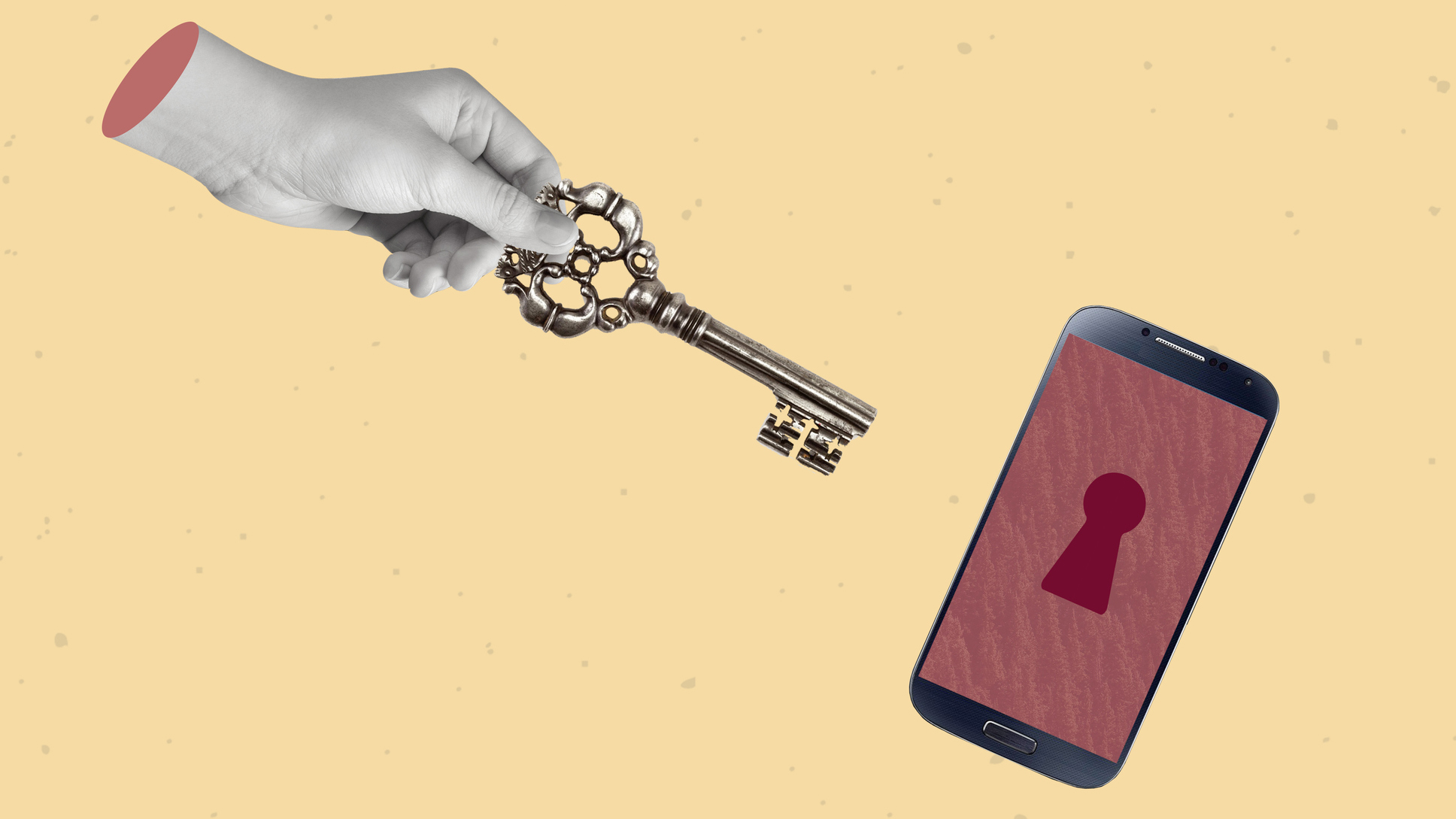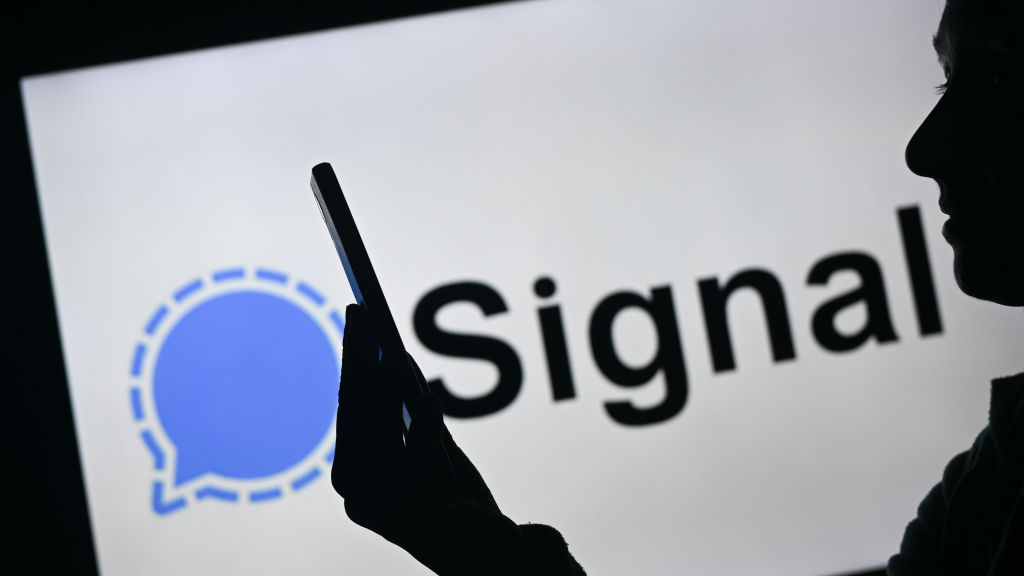Is it possible to send a truly anonymous message?
Is there such a thing as a really, truly private message?

Most of us expect our private messages to remain, well, private. If you had someone hanging over your shoulder every time you tried to send a text message, you’d probably tell them to buzz off. However, the reality is that there are thousands of invisible nosy parkers out there trying to passively collect your data every time you send a message online.
Is your messaging provider storing all your texts unencrypted on their servers? Well, a data breach means it’s all now in the hands of hackers. Government surveillance seeks to constantly undermine your right to private communication. Corporate data mining tries to infer every last thing about your preferences from the way you message your friends. It’s a nightmare trying to send sensitive information securely, but several apps out there claim to offer a solution. With all this in mind, is it really possible to send a truly anonymous message in the modern age?
I’ll answer by looking at some of the most popular messaging apps out there and examining how they offer anonymous messaging. Read on and you’ll see why WhatsApp isn’t up to scratch, how Burner can supplement your existing privacy apps, and why Signal is the way forward.
Anonymous messengers
Several messaging platforms claim to offer private or secure communication, but how do they stack up when it comes to true anonymity? Let’s see:
WhatsApp
WhatsApp is one of the world’s most widely used messaging apps. It’s estimated that there are nearly 3 billion unique users on WhatsApp. That’s a lot of messages to spy on.
To keep all of this data out of the hands of hackers, WhatsApp implemented end-to-end encryption as a standard default across all WhatsApp accounts in 2016. Messages are encrypted before they leave the device, and are only unencrypted after they reach the recipient device. WhatsApp doesn’t hold decryption keys for individual accounts, so messages can’t be read when they pass through the WhatsApp servers.
WhatsApp implemented end-to-end encryption as a standard default across all accounts in 2016
However, there are still a few problems with WhatsApp from a privacy perspective. When you sign up for WhatsApp, you must register with a phone number. While you might be able to use a pay-as-you-go mobile SIM to reduce the amount of personally identifiable information linked to your WhatsApp account, this isn’t a foolproof solution. It may also not be viable in jurisdictions that require you to present your passport or proof of address to buy a SIM card, such as in India.
There’s also the thorny issue of metadata. While WhatsApp can’t see your private messages, they can collect plenty of data about when you send them, who receives them, and which devices you have active. WhatsApp even records your status information and collects the profile pictures you upload to the service, which are all shared with the same Meta umbrella corporation that runs Facebook and Instagram.
This might not seem like a particularly egregious privacy violation at first glance, but it allows law enforcement to make some pretty nasty guesses at what you’re up to. For example, Natalie Edwards was convicted in 2018 after leaking confidential financial reports to a Buzzfeed journalist based, in part, on metadata indicating that she’d made several messages to that journalist around the time of publication.
Signal
Signal is pretty well-regarded as the first choice if you’re worried about privacy. The team behind it has built a reputation as one of the most secure messaging platforms. Not only does Signal use end-to-end encryption, but has also disclosed the code used to power its proprietary Signal protocol. Being open-source means that you can audit the code for yourself – but you won’t need to. Signal has already commissioned multiple third-party audits from various security organizations to confirm its apps are secure.
Signal also minimizes data collection. Unlike WhatsApp, Signal doesn’t store metadata that could reveal your communication patterns. In fact, Signal doesn’t even store your IP address. While it does cooperate with law enforcement, Signal takes the VPN approach of “we can’t hand it over because we don’t store it”.
With so much to like, are there really any downsides? Well, like WhatsApp, Signal relies on a registered phone number to onboard your account, which can tie your account to your real-life identity. However, Signal allows you to hide your phone number from other users and replace it with an anonymous username that you can use on the app instead.

Burner Apps
Burner works a little differently from the other apps I’ve mentioned, and can actually work in tandem with them. Instead of encrypting your messages in transit, Burner gives you far more control over the “phone” side of your device.
At its core, Burner gives you access to a secondary phone number that you can use to register with services or simply just hand out to contacts that you don’t want to give your primary number to. This doesn’t encrypt your SMS messages or phone calls (which are a prime source of meta-data anyway, so you should really stick to messaging apps where possible), but does give you some much-needed breathing space from marketers and scam phone calls.
The privacy issue with Burner is that it is a paid service. You’ll have to sign up with your payment details to get access to it, which means that it’s less than ideal for whistleblowers. Law enforcement in the US will still be able to submit subpoenas for carrier data and IP addresses that could be used to deanonymize you, so it’s best used to keep one step ahead of stalkers and hackers instead.
Telegram
Telegram is a halfway house between Signal and WhatsApp. It’s more popular than Signal, so you’re more likely to find other users who are also already on the service, but it doesn’t topple WhatsApp’s throne as the most popular messaging app. Conversely, it’s a more secure solution than WhatsApp but has some issues that mean I’d still recommend Signal if you’re truly concerned about your privacy.
Telegram is also open-source… sort of
Let’s start with the good stuff: It’s a secure messaging app that offers a “Secret Chat” feature with end-to-end encryption. However, its default chats are not encrypted end-to-end, leaving them vulnerable to interception through the Telegram servers.
Telegram is also open-source… sort of. It released the source code for the client apps so you can be sure your device isn’t doing anything you don’t expect, but unlike Signal, you won’t be able to verify what Telegram’s servers are up to.
There are also several other privacy issues with Telegram. As of 2024, Telegram now hands over IP addresses and phone numbers in response to law enforcement requests. Telegram was also previously the victim of a mass SMS interception attack in 2016 that led to 15 million users having their phone numbers leaked. Even worse, an exploit discovered in 2024 allowed hackers to send malware-boobytrapped videos over Telegram that could compromise your whole device.
Why is anonymous messaging important?
Anonymous communication is nice to have for the average person, but for certain groups it can be the difference between life and death. Here are some reasons why anonymity is crucial:
- People Living Under Strict Regimes: In countries with authoritarian governments, secure and anonymous communication allows for honest discussion that would otherwise leave its participants vulnerable to prosecution. Activists often rely on anonymous messaging to organize protests or share information.
- Whistleblowers: Whistleblowers exposing corruption put themselves at risk of recrimination from both the government and criminals. They need anonymous platforms to share (often privileged) information without risking their careers, reputations, or personal safety.
- Journalists: For every whistleblower, at the other end of the line there’s a reporter who depends on anonymous communication to protect their sources and investigate sensitive stories. End-to-end encryption is essential for maintaining the confidentiality of whistleblowers and informants, who will likely reconsider their role if they’re communicating in a risky way.
- Everyday Folks: Yes, that’s you! You might not have a high-stakes secret you need to share with the masses, but that doesn’t matter. Your right to privacy is fundamental, and anything that infringes on it should be treated with suspicion. Anonymous messaging helps keep your personal conversations free from prying eyes, whether it’s nosy marketers or overzealous governments.
- Vulnerable Groups: Privacy allows people to confidentially share information about themselves that might be damaging or embarrassing to share with the wider world. It’s unlikely you’d want everything you said to your therapist to read aloud in front of your peers, and any messages you’ve sent them shouldn’t be treated any differently. More seriously, domestic abuse survivors need to be able to communicate without fear of being stalked. LGBT individuals can face abuse if they’re outed from their messages. The elderly require direct lines of contact with their loved ones. When privacy is dismissed as a nicety instead of a right, it’s vulnerable groups that end up in the firing line.

Sam Dawson is a cybersecurity expert who has over four years of experience reviewing security-related software products. He focuses his writing on VPNs and security, previously writing for ProPrivacy before freelancing for Future PLC's brands, including TechRadar. Between running a penetration testing company and finishing a PhD focusing on speculative execution attacks at the University of Kent, he still somehow finds the time to keep an eye on how technology is impacting current affairs.
You must confirm your public display name before commenting
Please logout and then login again, you will then be prompted to enter your display name.